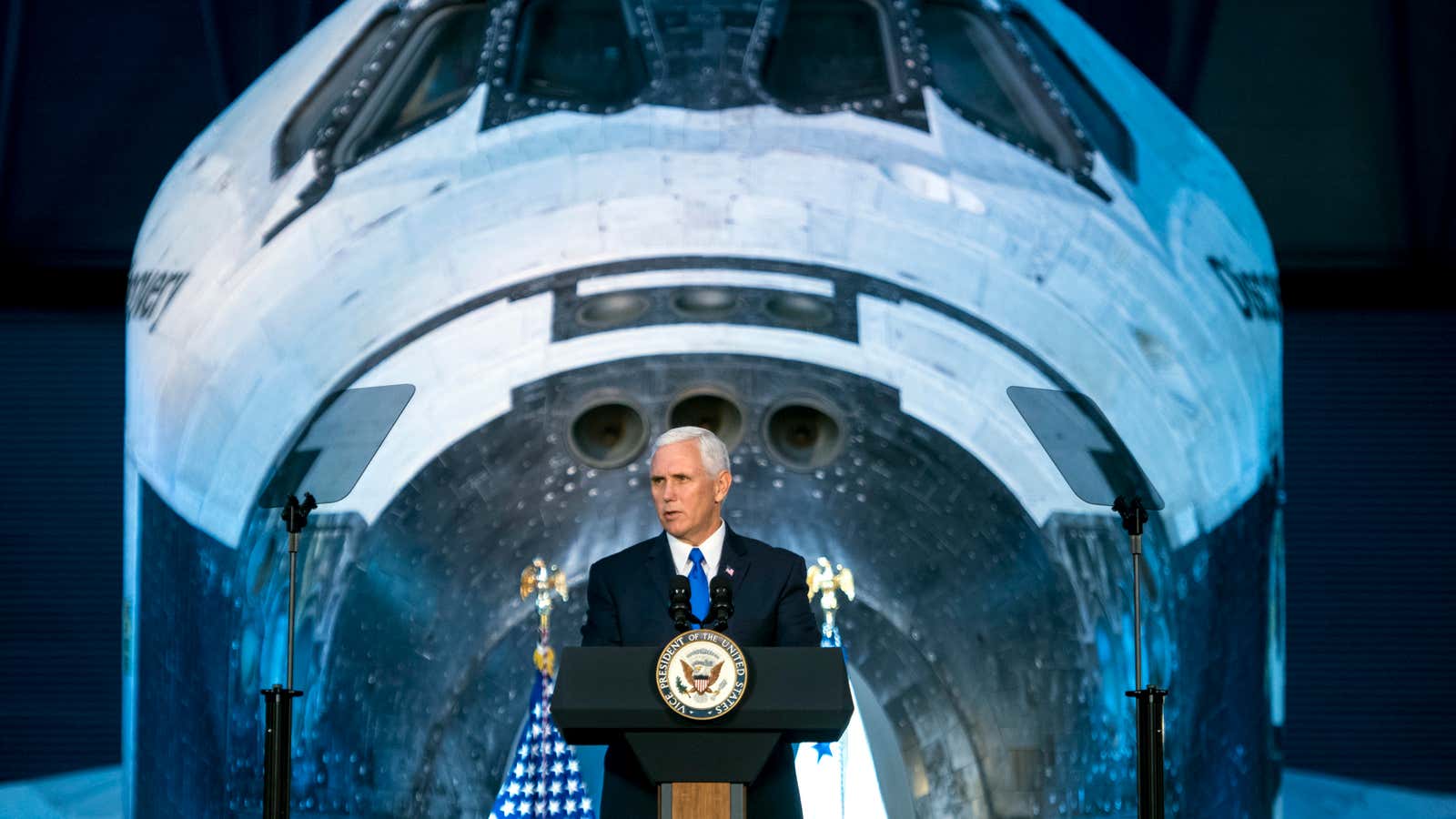On Dec. 11, 1998, the Judiciary Committee in the US House of Representatives approved three articles of impeachment for president Bill Clinton. The week before, on Dec. 4, NASA launched its first module to the orbiting platform that would eventually become the International Space Station.
Despite the chaos then engulfing the capital, the space agency managed to kick-off the most successful space project of the last two decades, the orbiting lab that has been the focus of the world’s human spaceflight efforts for two decades.
President Donald Trump’s administration is now attempting to get its own ambitious program off the ground, with a goal of landing astronauts, including the first woman, on the moon by 2024, four years sooner than planned.
“America is leading in space once again,” vice president Mike Pence said, as he does in all his space remarks, during the International Astronautical Congress in Washington, DC today. This time, however, there were chuckles from an audience hailing from around the globe.
US lawmakers have not committed to funding this project on the president’s schedule, and NASA now says it won’t be able to even estimate the full cost of it until 2020. With the impeachment inquiry announced by Speaker of the House Nancy Pelosi on Sept. 24 deepening, the White House’s political capital is likely to be more focused on defending the president than winning space bucks to meet the new deadline.
What made things different in the 1990s? Clinton, never known as the most disciplined president, managed to keep up the public appearance of business as usual during his impeachment proceedings. He “compartmentalized” his staff to focus on work and delivered boring speeches about policy, two things Trump is unlikely to do.
When elected, Clinton chose to keep Daniel Goldin, Republican president George H.W. Bush’s NASA administrator, in charge of the US space agency, underscoring the bipartisan continuity of space policy. It stands in contrast to Pence’s more partisan rhetoric about how Trump invigorated a space sector that had been moribund under his predecessors—while largely continuing the policies they created.
As House investigators drew up impeachment charges in November 1998, the Clinton White House happily promoted the flight to orbit on the space shuttle by 77 year-old Republican senator John Glenn. This week, Trump tried to hold a publicity event around the first US spacewalk performed by two women, but couldn’t get the talking points straight.
To be sure, 1998 offered more room to lawmakers for expensive space projects with the economy at the peak of the tech bubble and budget surpluses about to flood the Treasury coffers. Today, large deficits driven by tax cuts have left the US with harder choices about how to allocate resources. And the modern space program is in the midst of a major transition away from the space shuttle, retired in 2011, and toward new vehicles that will carry the next generation of astronauts in space, as well as deeper partnerships with private companies.
The post-Cold War diplomacy at the heart of the International Space Station project is also missing in action. While Canada, and more recently Japan, have committed to participating in the US lunar return, cooperation with Russia or China seems infeasible. That’s in part because Trump has portrayed the return as a way to earn geopolitical points against the other space powers, as Pence’s reference to “freedom-loving international allies” this morning made clear.
A lunar return still makes sense to many space stakeholders, but the timing and method remains anyone’s guess.
